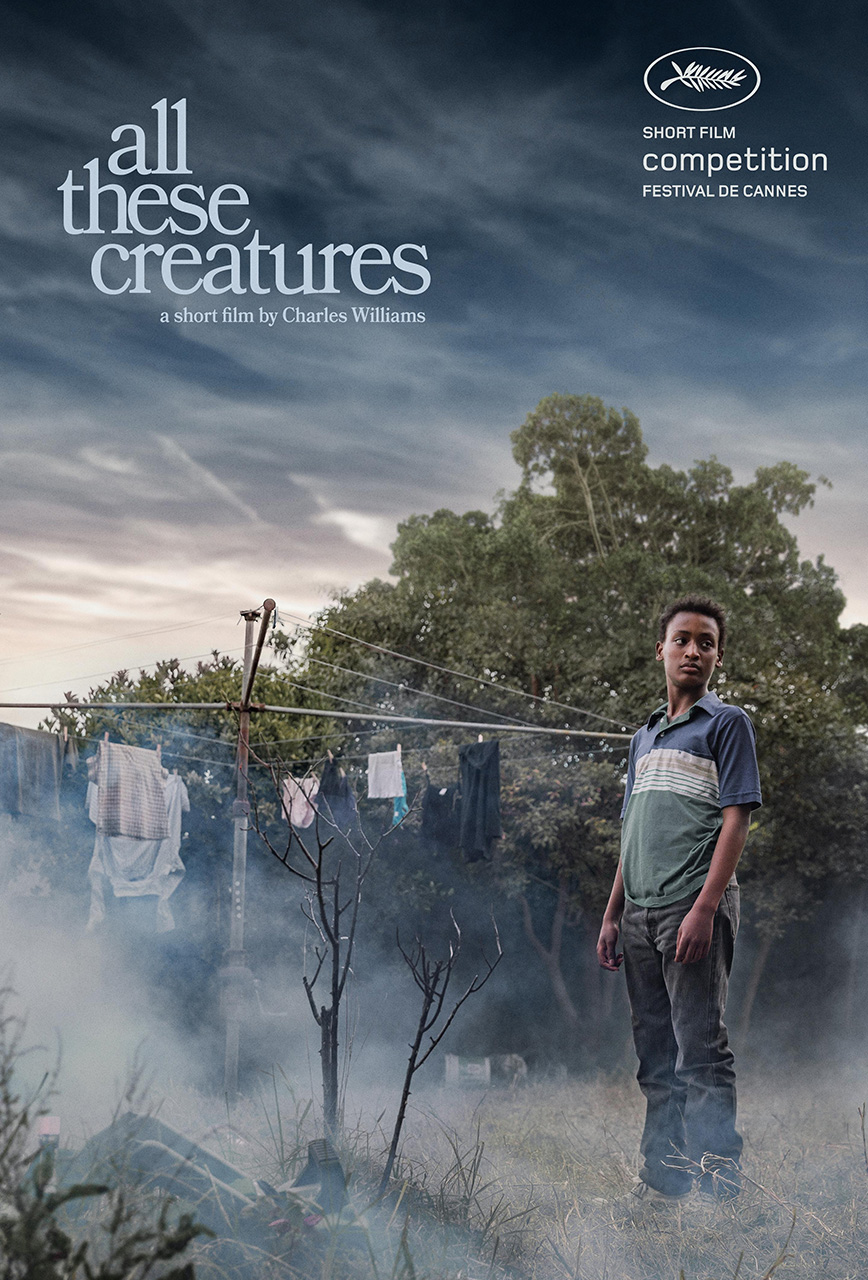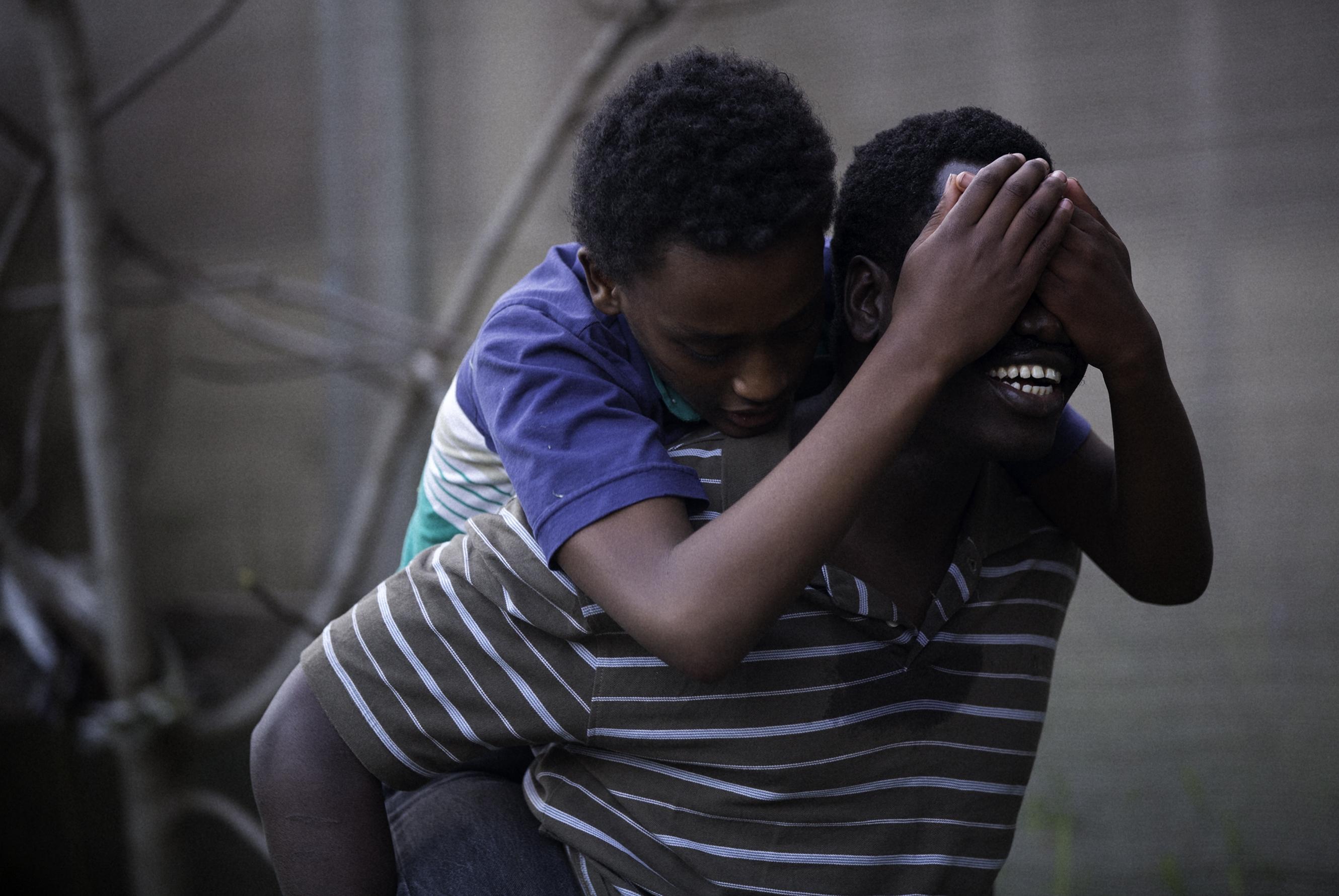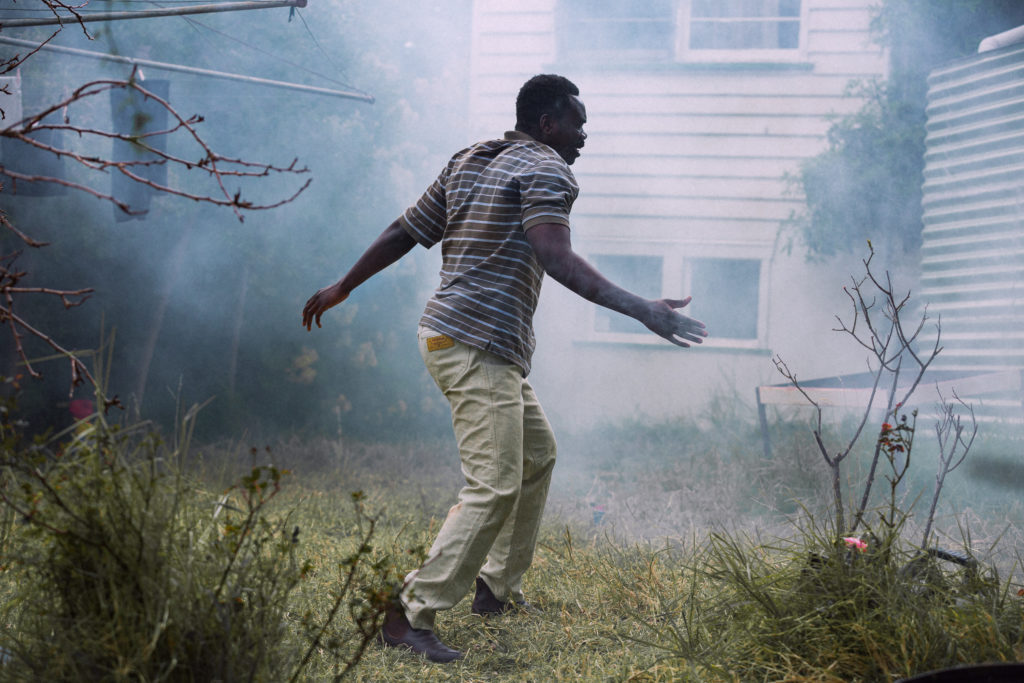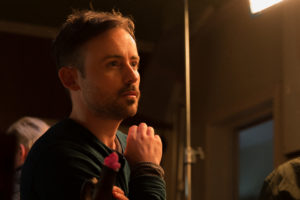Directed by Charles Williams –
An adolescent boy attempts to untangle his memories of a mysterious infestation, the unravelling of his father, and the little creatures inside us all.

GFM: Could you introduce the film for our readers who have not yet seen it?
Charles: The film follows a 13-year-old boy as he’s looking back on his memories of his father and trying to understand him as a full person rather than the kind of destructive figure that he remembers him as. I think it comes from the way we all try to, as we get older, see our parents as people rather than these mythic figures, and especially if you have a parent that’s kind of destructive, or violent. That’s a more complicated task, and this film is about that, and also a child’s adolescent fears of what they’re going to turn into, and how much control any of us have over that.
GFM: The film raises awareness of mental health and the potential effects it can have on a child and on a family. How did you choose such a topic?
Charles: It’s autobiographical in a lot of ways. I think you’re right about it talking about mental health, but I don’t know that it’s raising awareness, because I think I try to approach the film from a way that the child sees a parent, and I don’t know that he understands whether the father is a bad person or a mentally ill person. I wanted to explore where that line gets crossed. Where does a difficult personality become an illness? I try to openly explore the ambiguity between good person, bad person, sick person, volatile person, and where do we make that determination? And ultimately, if you’re down the end of the barrel of it, what’s the difference?

GFM: You made an interesting choice to first cast your lead and then write the part around your chosen actor. Can you talk about that approach?
Charles: I’d written the script, and I knew I needed something very specific from the lead, and it was going to be very hard to find. I needed someone about 13 years old, who had all of this maturity and innocence at the same time, who could hold the screen without doing anything, almost. These sort of enigmatic qualities are very hard to find in a typical 12/13 year old. So it occurred to me that it didn’t matter what race they were, and in many ways it didn’t matter whether they were a boy or a girl, and I could rewrite the story around who that was. So when I cast Yared Scott after looking through some 400 kids, it was essentially the same story, but I brought the nuances from his Ethiopian Australian background to it. I had four Ethiopian Australian advisors to make sure I didn’t include anything that was untrue or offensive. Ultimately, there was details added, but not a lot changed to the story. In fact, three of the Ethiopian Australian advisors told me separately that they were certain this was originally written as an Ethiopian Australian story.
GFM: Why did you decide to film this film in 16 millimeter?
Charles: That was never a dogmatic thing for me. I’ve shot a lot of stuff on film over the years, but I’ve also shot digitally, and this was just a series of conversations between me and the DoP. Thematically, the film is largely about this sort of organic erosion of the way we see the world, and how imperfect our memories can be, and that sort of lent itself a lot to the randomness and beauty of film.

GFM: You’ve invested a lot of your career in shorts, having made 5 short films so far. What are your views on the short film format and its place in your career?
Charles: Shorts are a necessity, regardless of what kind of films you want to make, because no one’s going to give you a million dollars up front, or whatever you need for a feature. But as their own art form, they’re tremendously difficult to get right. One of the reasons, I think, is that you’re always on training wheels, and then the shoot’s over. Most people that have made a feature will tell you, “Oh, we had to cut most of what we shot in the first week, because no one found their feet yet.” When you’re a short film maker, that’s the entirety of your film. So with this film, we worked really hard for a number of weeks before the shoot. I would write scenes that weren’t included in the movie, and myself and the actors would perform them, often on set, and then we’d roll the cameras late.
GFM: What does being accepted into the Palme d’Or Competition at Cannes mean to you?
Charles: The world, really. There’s no greater aspiration I would have for a short film, or a feature, I think. I mean, Cannes is like the Mecca for great cinema, and to even have a short film included in that realm, it means a lot to me personally, but maybe even more importantly, it means a lot to the outside world. As short filmmakers, you are just elbowing your way in around the fringes of a film industry, and so when you get an opportunity to be at a festival this acclaimed, I think it helps go some of the way to people going, “Okay, well maybe this person, we can start to take seriously.”

director Charles Williams